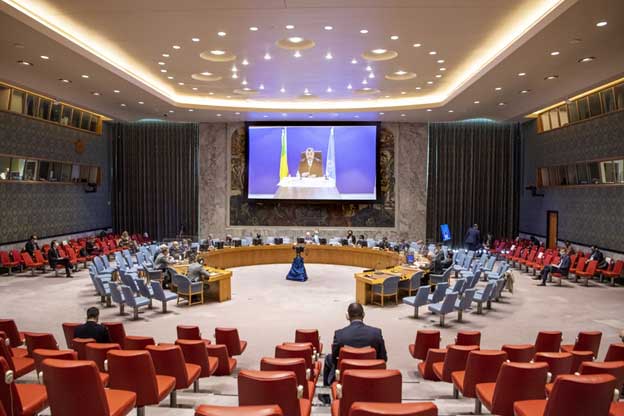In Praise of Competitive UN Elections

NEW YORK, May 19 (IPS) - Next month’s United Nations Security Council elections show why competition is important.
UN votes for seats on important bodies like the Security Council and Human Rights Council often make a mockery of the word “election.” They typically have little or no competition, ensuring victory for even the least-qualified candidates.
On June 6, the 193-nation General Assembly is scheduled to elect five members to the Security Council for 2023-2024. Delegations get to choose between Slovenia and Belarus for one Eastern European seat, and South Korea and Tajikistan for one Asian seat. The Western, African, and Latin American/Caribbean regional slates are all devoid of competition.
Many delegations and their regional groups prefer noncompetitive slates. They say all countries should have a chance to serve on UN bodies. But noncompetitive slates undermine the purpose of elections, which is to enable member states to choose the most qualified candidates over others.
Case in point: Belarus wants a seat on the Security Council, the UN body overseeing international peace and security. Despite its chronic dysfunction, it’s the UN’s most powerful body. It can authorize military force and impose sanctions.
Globally, it oversees numerous peacekeeping and political missions, whose staff includes hundreds of human rights officers that monitor and report on abuses.
Look at Belarus. At a May 16 UN debate with the ambassadors of Belarus and Slovenia, Belarusian Ambassador Valentin Ryabkov claimed to recognize the importance of human rights.
But within his country there’s an atmosphere of repression and fear, with widespread rights violations that may amount to crimes against humanity. Human rights defenders, including 2022 Nobel Peace Prize winner Ales Bialiatski, have been imprisoned on bogus charges.
At the General Assembly, Belarus has opposed condemnations of Russian atrocities in Ukraine and aided efforts to whitewash China’s crimes against humanity in Xinjiang.
Tajikistan’s rights record has deteriorated amid a government-led crackdown on freedom of expression and the political opposition. In addition, both sides in Tajikistan’s border conflict with Kyrgyzstan have committed apparent war crimes with impunity.
Member countries can’t vote out Russia, China, or the other three permanent Security Council members. But when elections for rotating seats are competitive, member states can and should reject abusive governments. They should do that on June 6.
Louis Charbonneau is United Nations Director, Human Rights Watch charbol@hrw.org | www.hrw.org @loucharbon
IPS UN Bureau
Follow @IPSNewsUNBureau
Follow IPS News UN Bureau on Instagram
© Inter Press Service (2023) — All Rights Reserved. Original source: Inter Press Service
Where next?
Browse related news topics:
Read the latest news stories:
- UNICEF Report Warns of Rising Rates of Child Mortality without Proper Funding Friday, March 28, 2025
- Tariffs: Job protectors or trade killers? Friday, March 28, 2025
- Indian Colonialism in Sri Lanka Thursday, March 27, 2025
- Organic Fertilizers Prove Effective on Tea as Farmers Abandon Synthetic Inputs Thursday, March 27, 2025
- Bangladesh's Ethnic People Safeguarding Forests and Wildlife Thursday, March 27, 2025
- Fast fashion fuelling global waste crisis, UN chief warns Thursday, March 27, 2025
- Gaza: UN humanitarians flag impact on children of return to war Thursday, March 27, 2025
- Armed groups install ‘parallel administration’ in DR Congo, Security Council hears Thursday, March 27, 2025
- Sudan war: Displacement figures fall for first time Thursday, March 27, 2025
- DR Congo: Record numbers face acute or emergency hunger Thursday, March 27, 2025
Learn more about the related issues: